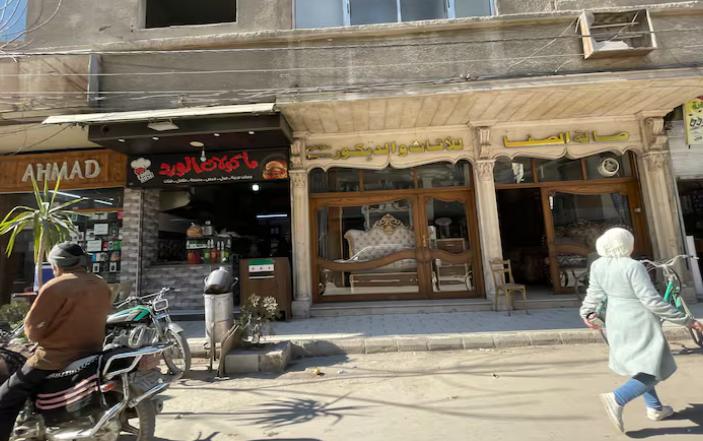
HTS army recruitment blitz aims to cement control of new Syria
Dust and dirt fly off a black Jeep as it speeds over broken pavement in the eastern Ghouta suburbs of Damascus. The man in the front passenger seat, Hayat Tahrir Al Sham operative Abu Amro, is in a hurry.
His mission is to recruit as many young men as possible to the group, which ousted Bashar Al Assad in December with just 20,000 fighters.
HTS, formerly linked with Al Qaeda and Al Nusra Front, is now running a country at the crossroads of the Middle East, having relocated to Damascus from the northern governorate of Idlib. It needs manpower, and fast, especially in outlying areas.
Abu Amro orders the driver to stop at a public square in the former rebel district of Ain Tarma. Vegetable sellers with the new Syrian flag plastered over their vehicles pause to watch the gaunt man with an immaculately trimmed black beard step into a municipal building.
“Do you know suitable people to join us?” Abu Amro asks an Ain Tarma notable. He leaves a phone number and heads to a former regime barracks in the area where new HTS recruits will undergo three-week training.
The extra manpower will help HTS increase its control over Syria. In Ghouta and elsewhere over the last month, the group has been superimposing its own security structures on local governments it already runs, according to members of the organisation and other people working with it.
The tightened grip could undermine hopes for an open society that many Syrians have expressed since HTS ended five decades of dictatorship by the Assad family. Under Bashar Al Assad and his father, Hafez, security was pervasive – official structures could not decide on anything significant without consulting the secret police.
In general, there have been no clampdowns on dissent or secret detentions seen under the previous regime. The country’s new president, HTS leader Ahmad Al Shara, has not made an explicit commitment to a democratic transformation.
Thousands have joined the group since the regime fell, Abu Amro says, with hundreds more expected soon at the barracks in Ghouta. There, he greets school-aged children who have volunteered to clean the compound.
They rip off posters of Mr Al Assad and throw away piles of decrepit uniforms, helmets with broken straps and other worn-out military gear – evidence of the former regime’s decline.





